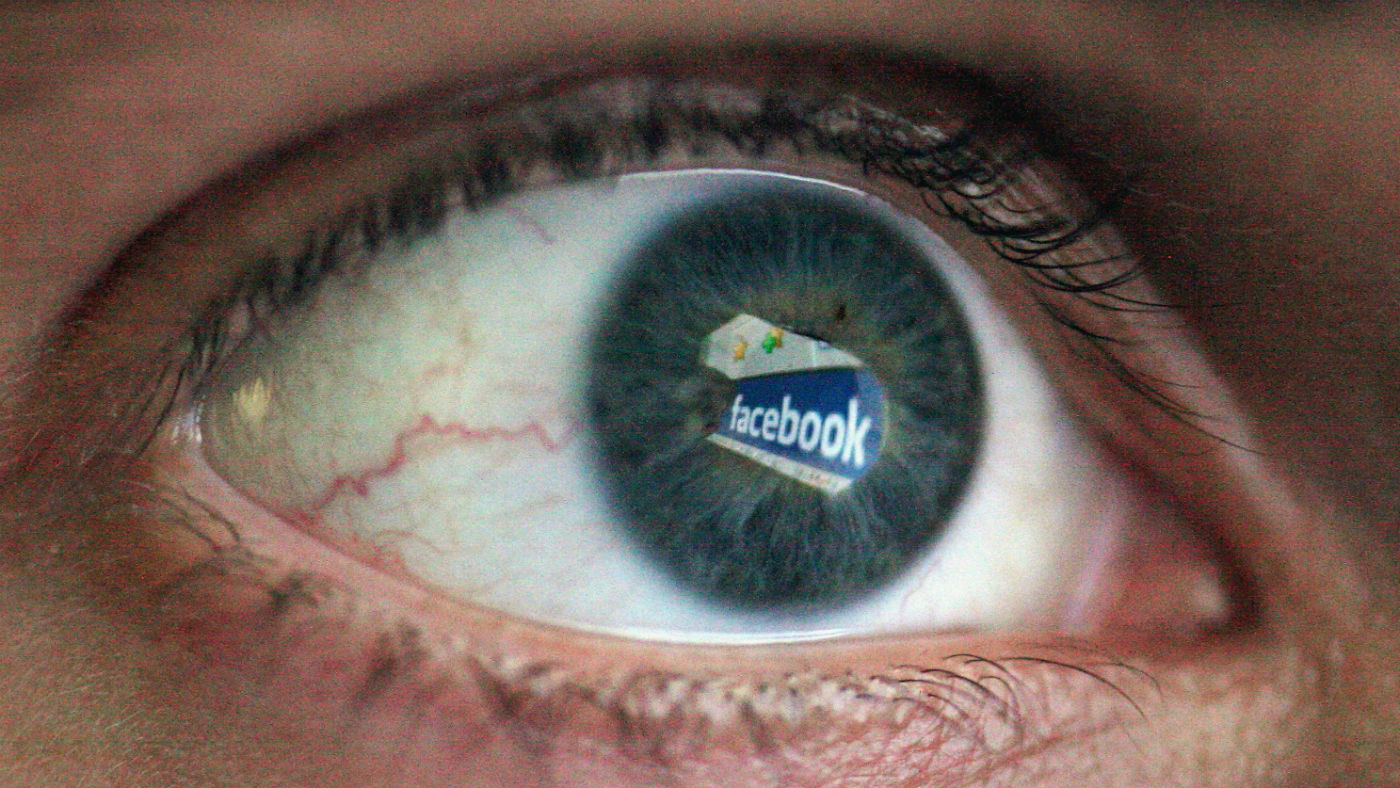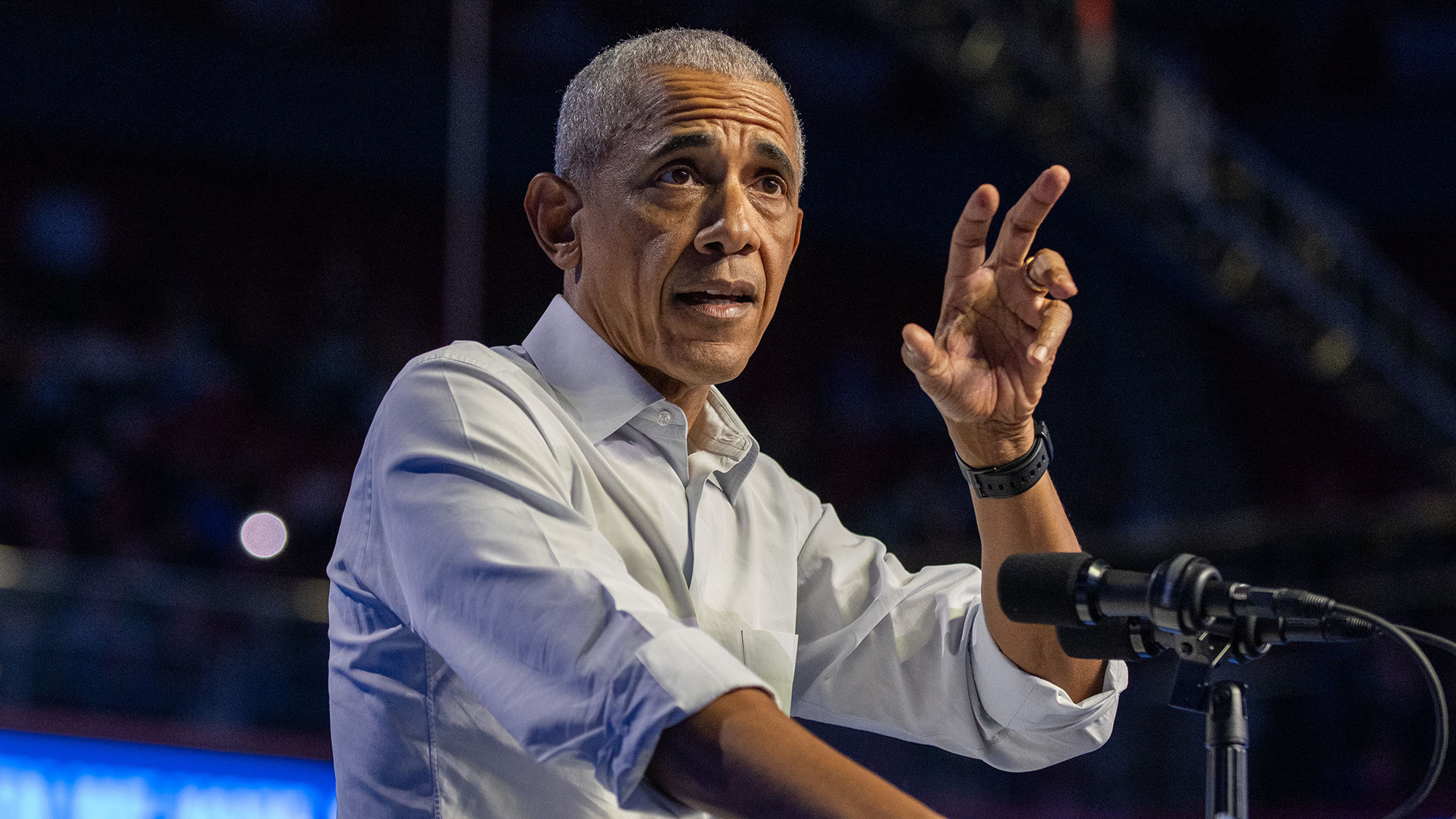Russian Facebook adverts targeted states ‘crucial to Trump victory’
Social media giant estimates Kremlin-backed ads were seen by ten million Americans during election

A free daily email with the biggest news stories of the day – and the best features from TheWeek.com
You are now subscribed
Your newsletter sign-up was successful
Russia-linked Facebook ads targeted swing states crucial to US President Donald Trump’s victory, according to new reports, adding further fuel to claims that the Kremlin interfered in last year’s election.
CNN has cited four sources “with direct knowledge of the situation”, who confirmed that Russian ads targeted the battleground states of Michigan and Wisconsin in the run-up to the vote last November.
Michigan, which Trump won by about 10,700 votes from his Democratic challenger Hillary Clinton, and Wisconsin, which he won by about 22,700, were both crucial to his electoral college victory.
The Week
Escape your echo chamber. Get the facts behind the news, plus analysis from multiple perspectives.

Sign up for The Week's Free Newsletters
From our morning news briefing to a weekly Good News Newsletter, get the best of The Week delivered directly to your inbox.
From our morning news briefing to a weekly Good News Newsletter, get the best of The Week delivered directly to your inbox.
NBC News also claims political ads targeted other swing states, including Florida, Georgia and Ohio, all of which went to Trump.
As part of investigations into foreign involvement in the election, special counsel Robert Mueller and congressional committees are asking whether the Russians received any advice from Trump associates on where to target the ads. The focus on Michigan and Wisconsin “adds more evidence that the Russian group tied to the effort was employing a wide range of tactics potentially aimed at interfering in the election”, says CNN.
On Monday, Facebook’s vice president for policy and communications, Elliot Schrage, said an estimated ten million people in the US saw at least one of the 3,400 political ads bought by accounts linked to the Russian government.
Schrage said most of the ads “appear to focus on divisive social and political messages across the ideological spectrum, touching on topics from LGBT matters to race issues to immigration to gun rights” and were designed to appeal directly to swing voters.
A free daily email with the biggest news stories of the day – and the best features from TheWeek.com
His disclosure came hours after Facebook handed over detailed records of the ads to House and Senate intelligence and judiciary committees, including data about buyers and their targets.
Facebook has admitted it is “possible” that there are more Russian-bought political ads on the network yet to be identified. Although the focus has been on assessing the origin and impact of ads placed in the run-up to the presidential election, there are also concerns that the site could be weaponised again for the 2018 midterms.
CNBC says Facebook is facing “mounting criticism” in Washington about its response to the propaganda and misinformation that Russia-based organisations placed on its site.
Following Trump’s victory, Facebook founder and chief executive Mark Zuckerberg said it would be “crazy” to think the site could have swayed the election. Yet, less than a month ago, evidence that foreign political actors had used the site to influence voters led him to apologise for the comment, and pledge the company’s commitment to stopping foreign governments interfering in US elections.
In response to the latest Facebook submissions, Senator Mark Warner, the highest-ranking Democrat on the Senate intelligence committee, said he intends to introduce a bill that will remove an exemption for online political ads that has previously shielded their buyers from public scrutiny.
-
 The ‘ravenous’ demand for Cornish minerals
The ‘ravenous’ demand for Cornish mineralsUnder the Radar Growing need for critical minerals to power tech has intensified ‘appetite’ for lithium, which could be a ‘huge boon’ for local economy
-
 Why are election experts taking Trump’s midterm threats seriously?
Why are election experts taking Trump’s midterm threats seriously?IN THE SPOTLIGHT As the president muses about polling place deployments and a centralized electoral system aimed at one-party control, lawmakers are taking this administration at its word
-
 ‘Restaurateurs have become millionaires’
‘Restaurateurs have become millionaires’Instant Opinion Opinion, comment and editorials of the day
-
 How corrupt is the UK?
How corrupt is the UK?The Explainer Decline in standards ‘risks becoming a defining feature of our political culture’ as Britain falls to lowest ever score on global index
-
 The high street: Britain’s next political battleground?
The high street: Britain’s next political battleground?In the Spotlight Mass closure of shops and influx of organised crime are fuelling voter anger, and offer an opening for Reform UK
-
 Is a Reform-Tory pact becoming more likely?
Is a Reform-Tory pact becoming more likely?Today’s Big Question Nigel Farage’s party is ahead in the polls but still falls well short of a Commons majority, while Conservatives are still losing MPs to Reform
-
 Taking the low road: why the SNP is still standing strong
Taking the low road: why the SNP is still standing strongTalking Point Party is on track for a fifth consecutive victory in May’s Holyrood election, despite controversies and plummeting support
-
 Will Trump actually prosecute Obama for 'treason'?
Will Trump actually prosecute Obama for 'treason'?Today's Big Question Or is this just a distraction from the Jeffrey Epstein scandal?
-
 Trump attacks Obama as Epstein furor mounts
Trump attacks Obama as Epstein furor mountsSpeed Read The Trump administration accused the Obama administration of 'treasonous' behavior during the 2016 election
-
 What difference will the 'historic' UK-Germany treaty make?
What difference will the 'historic' UK-Germany treaty make?Today's Big Question Europe's two biggest economies sign first treaty since WWII, underscoring 'triangle alliance' with France amid growing Russian threat and US distance
-
 Is the G7 still relevant?
Is the G7 still relevant?Talking Point Donald Trump's early departure cast a shadow over this week's meeting of the world's major democracies